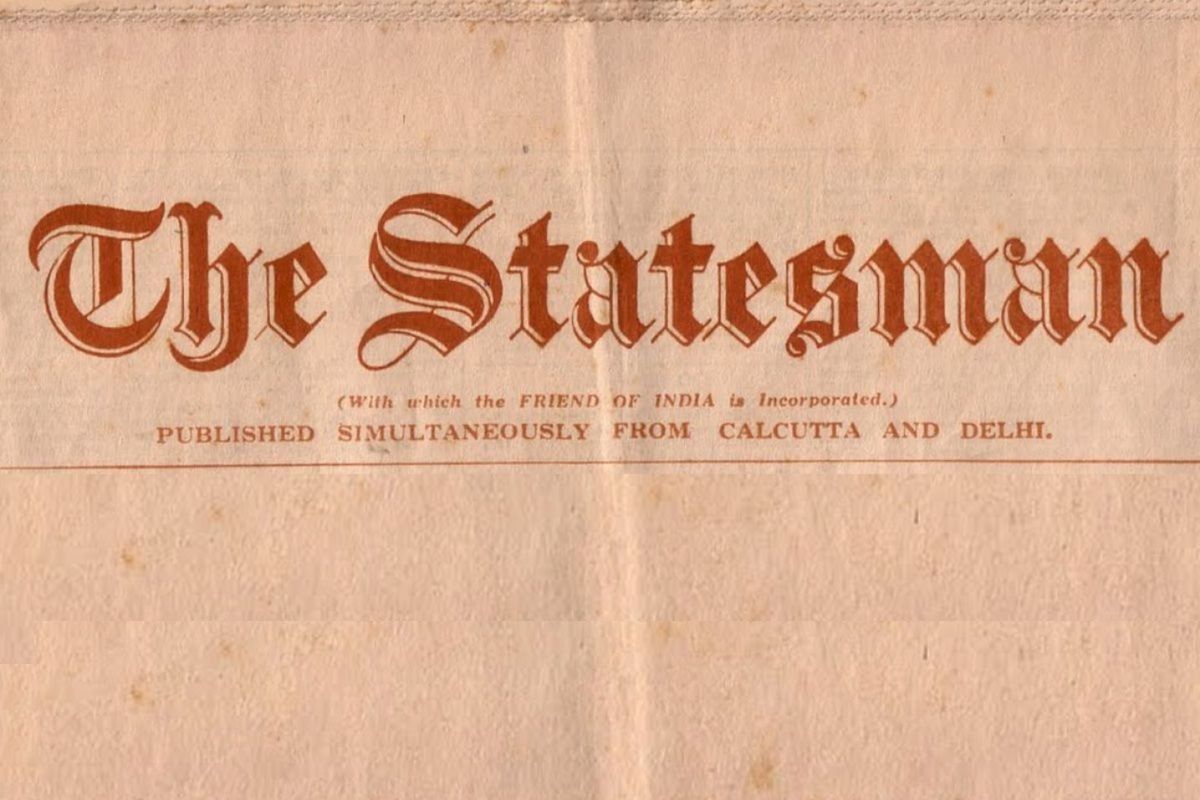Leading women personalities on what it takes to be a woman!
On International Women's Day, The Statesman talked to esteemed women personalities from various fields on what it takes to be a woman in our country and what empowers them.
On this day a century ago, these were some of the news items The Statesman readers got to read about India and the world.

OCCASIONAL NOTE
Deficiency diseases, of which beri-beri and scurvy are typical examples, are among the evils of war, and the recent war brought new opportunities for the study of old problems connected with them. The theory which now holds the field is that the cause of such diseases is to be found in the absence of the essential vitamins from the food, and the obvious remedy is to supply these substances. From a recent discussion on this matter in the Royal Society of Medicine, it appears that the germinating parts of wheat and pulses, yolk of egg, dried peas, beans etc., are specially rich in vitamins, but they are just the things which are often not to be obtained in the circumstances in which the deficiency diseases occur. Lime juice has long had a reputation as an anti-scorbutic remedy that retains its potency for a long time, and it is often said that it was the means of abolishing scurvy from the British navy. It is now said that lemon juice has four times the potency of lime juice for this purpose, and an examination of Admiralty record has shown that the term “lime” was used indifferently at first for limes and lemons, and that lemons from the Mediterranean were first used. It is true that at a later date lime juice was almost exclusively used, but by that time steam had come into use and the danger of scurvy was much less. Orange juice is said to be even more effective.
Advertisement
BOMBAY MILL WORKERS STRIKE
Advertisement
BOMBAY, JAN 6
It appears that an emergency meeting of the Bombay Millowners’ Association has decided to give their committee powers to deal with the strike situation in any manner they may think best. Bands of strikers looted a sweetmeat shop, also two grain shops, before being dispersed by the police. As a consequence some shops in the district closed yesterday. Otherwise the strikes have not been disorderly. A Marathi leaflet was distributed in the mill districts yesterday signed by two men styling themselves “Joint Secretaries of the Millhands Association, Bombay.” The leaflet says the mill operatives demand (1) 85 per cent grain compensation instead of the present 35 per cent, (2) that working hours be ten instead of twelve, (3) bonus within ten days of resuming work, (4) and that if these demands be approved notices be posted at the mills. INDIAN
EDUCATIONAL SERVICE
DELHI, JAN 6
The orders of the Secretary of State on the proposals of the Public Services Commission in regard to the Indian Educational Service have now been received. The main features of the reorganisation are: (1) That the pay will be the same for all members of the service, irrespective of race, place of recruitment, etc., but that there will be a system of overseas allowances based on domicile. (2) That while the point in the scale at which a new recruit enters will be fixed by his age, the scale will be applied to existing members of the service as an ordinary time scale by years of service. The overseas allowances are intended not to establish any differentiation in favour of Europeans but to secure some measure of equality of emoluments by relieving European officers.
HOSTEL FOR INDIAN NURSES
Her Excellency, Lady Ronaldshay, accompanied by Major Sandes, paid a visit to Lady Rogers’ Hostel for Indian Nurses on Monday morning and was received by the Hon. Sir Manindra Chandra Nandy of Kasimbazar, Sir Kailas Chunder Bose, Major-General W.H. Robinson, Dr. D.N. Maitra, Lady Mookerjee, and Lady Rogers. After one of the Indian nurses had presented a bouquet of chrysanthemums Her Excellency was taken all over the hostel. Lady Rogers expressed thanks to Lady Ronaldshay for her visit and said, it has been a great pleasure to show Her Excellency the hostel and we very much regret that owing to illness Her Excellency Lady Chelmsford was unable to come, but we shall hope for a visit in the future.
BOLSHEVIK EMISSARIES FOR THE EAST
DELHI, JAN 6
A message from a trans-frontier source indicates that the Bolsheviks have recently opened over fifty “schools” in Tashkent. This, however, must not be taken as evidence of zeal in the cause of education for the “schools” are mere training grounds for Bolshevik emissaries who are carefully instructed in the tongues of India and the Far East and provided with the intellectual equipment of the modern propagandist. Large numbers of “teachers” from Soviet Russia have been earmarked for these “schools” with the object of providing a thoroughly satisfactory course of instruction in the art of spreading the doctrines of the Bolsheviks.
Advertisement